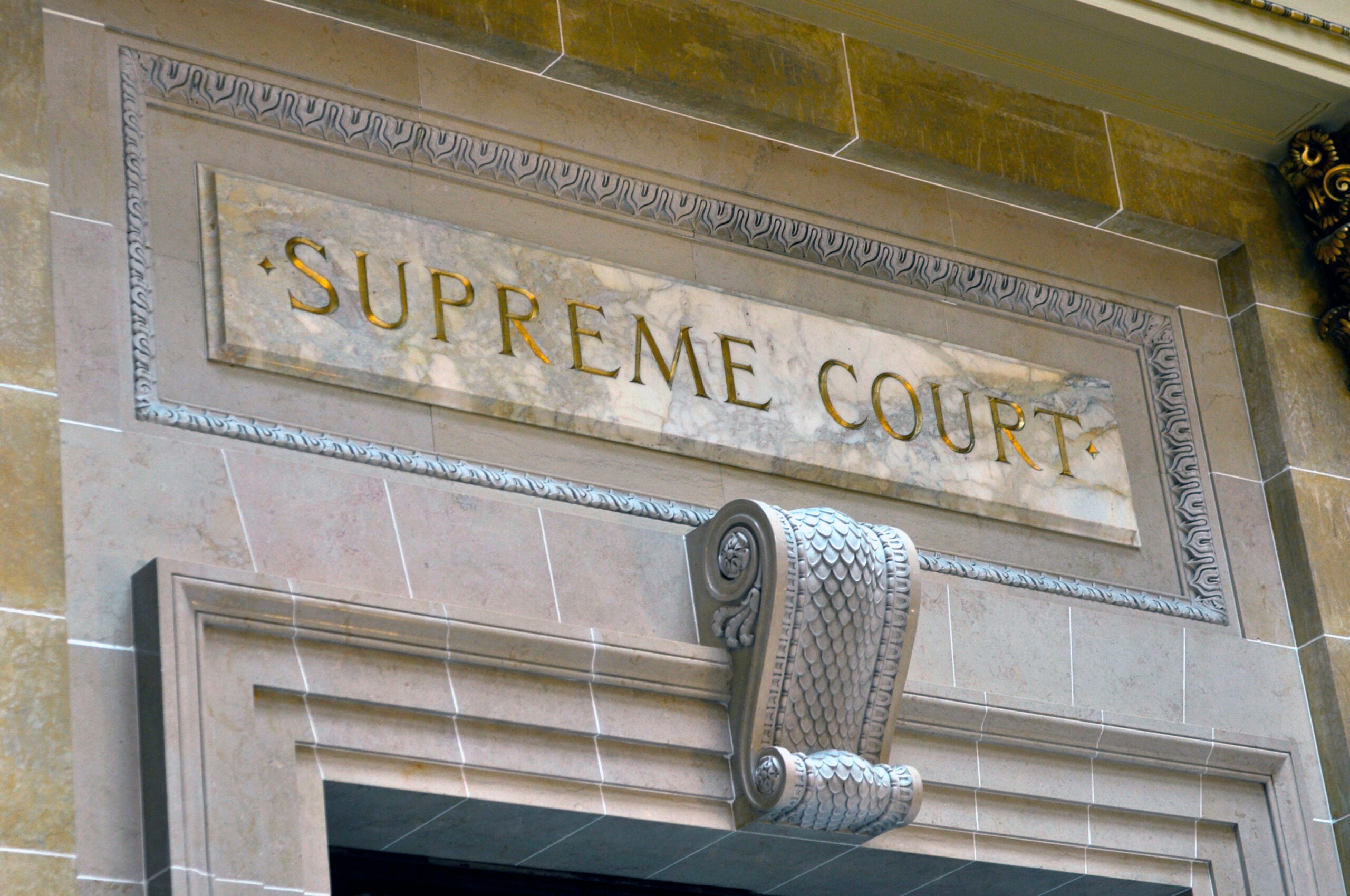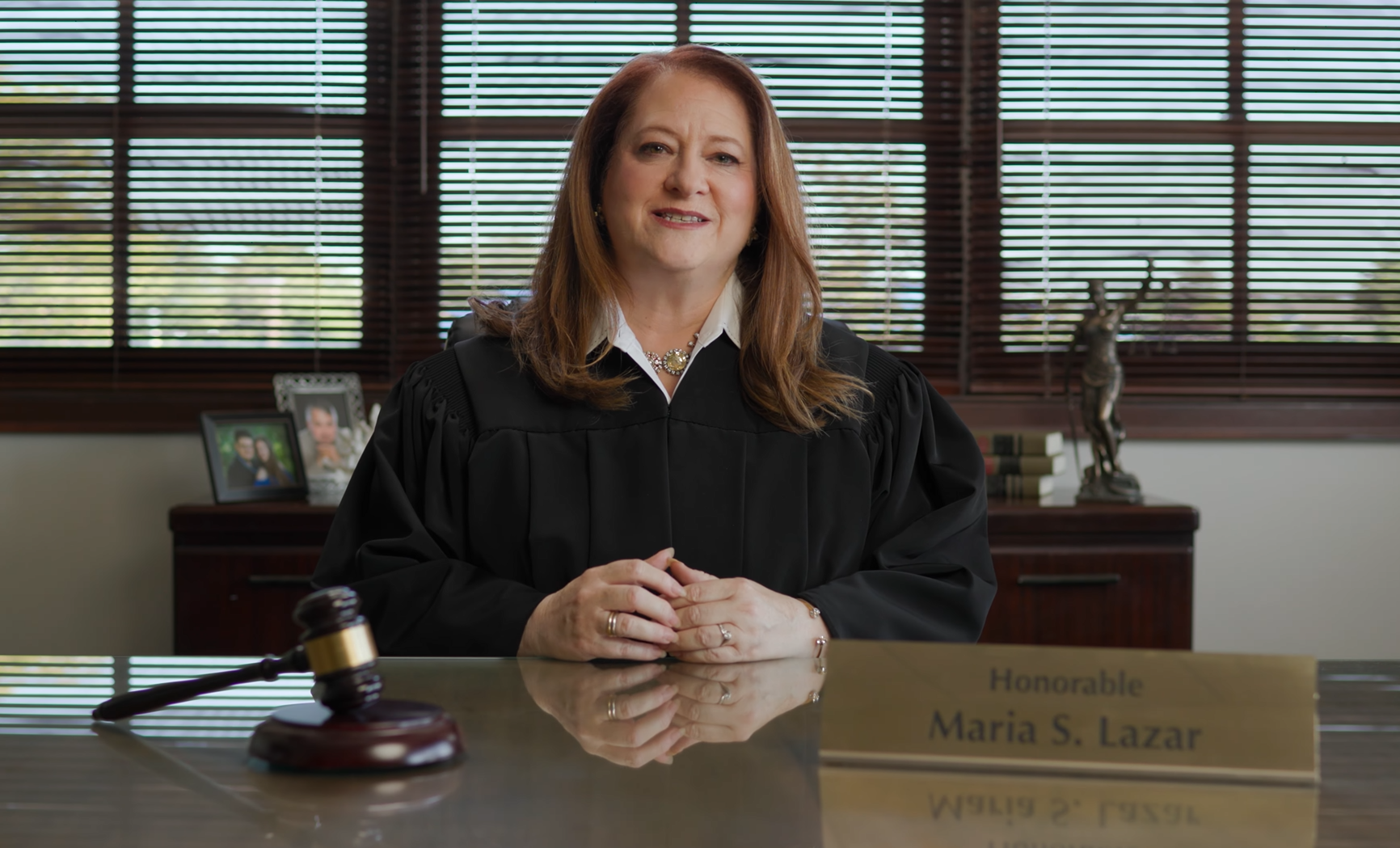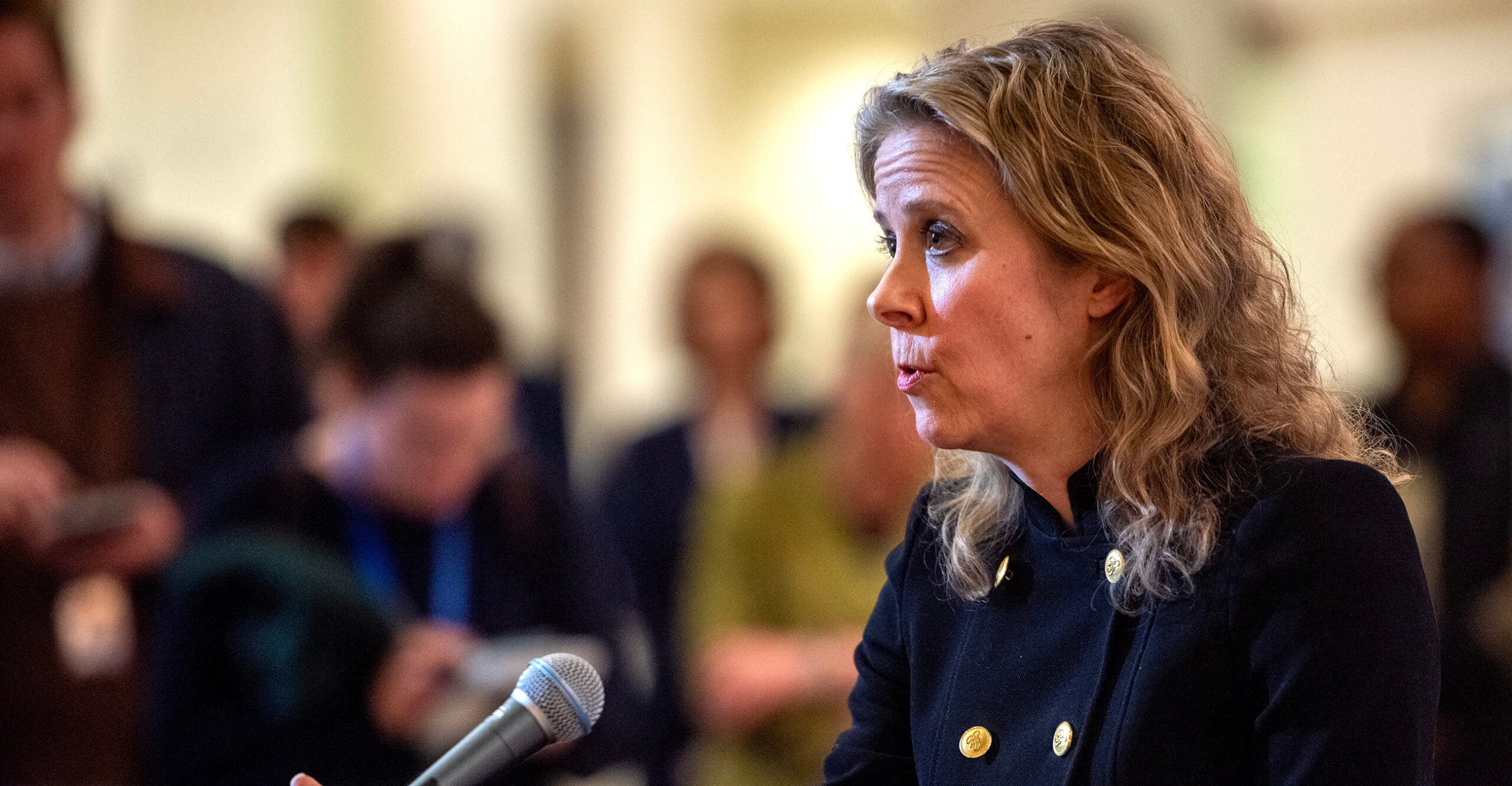Milwaukee County Judge Rebecca Dallet has won a 10-year term on the Wisconsin Supreme Court, riding a wave of Democratic enthusiasm to victory in her officially nonpartisan race.
The race drew national attention, mostly from Democrats, who saw it as an opportunity to build momentum toward the general election in November.
Dallet defeated Sauk County Judge Michael Screnock by a margin of 56 to 44 percent, or nearly 115,000 votes statewide.
News with a little more humanity
WPR’s “Wisconsin Today” newsletter keeps you connected to the state you love without feeling overwhelmed. No paywall. No agenda. No corporate filter.
Dallet’s win will chip away at the court’s conservative majority, changing the balance from a 5-2 conservative edge to a 4-3 split.
It also marks the first time since these races became more politicized about a decade ago that liberals have gained ground on the court instead of losing it.

Milwaukee County Judge Rebecca Dallet was elected Tuesday, April 3, 2018, to serve on the state Supreme Court. Scott Bauer/AP Photo
“I think my message resonated with Wisconsinites,” Dallet told supporters Tuesday night in Milwaukee. “People are tired of special interests ruling and wanted to speak up.”
In his concession speech to supporters Tuesday in Wisconsin Dells, Screnock denounced the influence special interests had on the race.
“I am proud to have run a campaign that remained focused on my judicial philosophy and my experience in spite of tremendous outside influence from liberal special interest groups that were willing to say and spend anything to elect their preferred candidate to the bench,” Screnock said.
While candidates for the state Supreme Court have long found ways to send hints about their political leanings, this year’s race was as overtly partisan as any in recent memory.
Dallet’s first TV ad featured grainy black and white footage of President Donald Trump, warning voters that their values were under attack.
She was endorsed by a variety of national Democrats, including former U.S. Attorney General Eric Holder, former Vice President Joe Biden and New Jersey U.S. Sen. Cory Booker.
Holder’s National Democratic Redistricting Committee ran ads on Dallet’s behalf, and he campaigned for her last month during stops in Wisconsin.
“Today, the voters of Wisconsin took a critical first step toward a state government that better reflects their needs and interests,” said Holder in a statement Tuesday night.
Screnock argued Dallet’s overtures to Democrats showed she would be an “activist” on the court, but Screnock himself received more money from a political party than any Supreme Court candidate in Wisconsin history.
The Republican Party of Wisconsin spent more than $300,000 on Screnock’s behalf, and his campaign was endorsed by conservative groups ranging from Wisconsin Manufacturers and Commerce to the National Rifle Association.
Gov. Scott Walker, who appointed Screnock to the Sauk County Circuit Court, also endorsed him. As a private attorney, Screnock defended Walker’s Act 10 collective bargaining law and the Republican-drawn redistricting plan that is pending before the U.S. Supreme Court.
Sauk County Judge Michael Screnock concedes in Wisconsin Dells on Tuesday, April 3, 2018, after losing the race for Wisconsin Supreme Court to Rebecca Dallet. Marylee Williams/WPR
“Tonight’s results show we are at risk of a #BlueWave in WI,” Walker said in a tweet after the results were announced. “The Far Left is driven by anger & hatred — we must counter it with optimism & organization. Let’s share our positive story with voters & win in November.”
Dallet’s victory gives another indication that the 2018 general election could favor Democrats. It follows a string of special election victories for Democrats around the country, including one in Wisconsin earlier this year, when Sen. Patty Schachtner, D-Somerset, won a district Trump carried by 17 percentage points.
Dallet will replace outgoing conservative Justice Michael Gableman, who wrote the opinions that upheld Walker’s Act 10 and that shut down an investigation into Walker’s campaign.
Her election also means that six out of the seven state Supreme Court justices are women. The others are Chief Justice Patience Roggensack and Justices Shirley Abrahamson, Ann Walsh Bradley, Rebecca Bradley, and Annette Ziegler.
Dallet will be officially sworn in as justice on Aug.1.
Wisconsin Public Radio, © Copyright 2025, Board of Regents of the University of Wisconsin System and Wisconsin Educational Communications Board.







